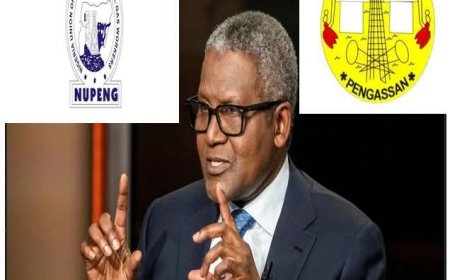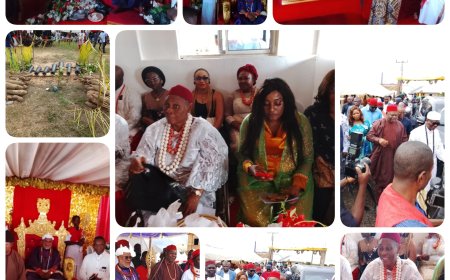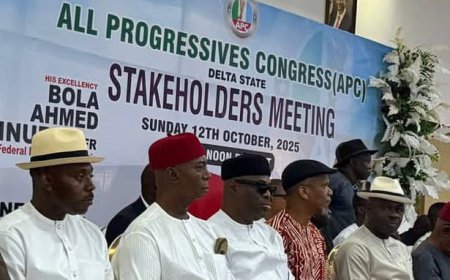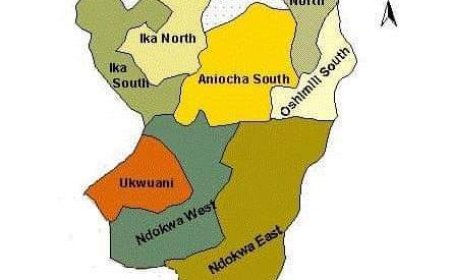THE LACK OF TRANSPARENCY BY INTERNATIONAL OIL COMPANIES (IOCs) AND NATIONAL OIL COMPANIES (NOCs) CONTRIBUTING TO CRUDE OIL THEFT AND PIPELINE VANDALISM IN NIGER DELTA REGION
By Ally 24 September 2025

One of the major causes of crude oil theft and pipeline vandalism originated from deliberate marginalisation through infidelity found amongst ad-hoc staff in the form of community contractors in collaboration with some permanent management staff in the oil and gas industry who criminally neglected the global welfare practices outlined for host community employees.
To buttress the facts of my observations and in-depth causes of crude oil theft and pipeline vandalism the below analysis further expatiate my in-depth observations:
1. CORRUPTION AND LACK OF TRANSPARENCY: IOCs and NOCs' practices are seen as major factors fueling criminality like oil theft by not allowing the process to flow according to global practice most especially in Nigeria.
2. TREATMENT OF HOST COMMUNITY WORKERS: Casualization, poor wages, and inadequate welfare packages impoverish local workers. The standard global practice enable employees to be treated equally in terms of welfare packages. But here in Nigeria host communities engaged employees are treated like slaves.
3. DISCONNECT FROM GLOBAL STANDARDS: Practices contrast with recognized global standards for host communities. IOCs and NOCs permanent management staff in collaboration with ad-hoc engaged community contractors in the various host communities totally neglect the legal global practice meant to protect host community employees for their selfish gains.
4. INSTITUTIONAL FAILURES: Regulatory bodies and company officials are perceived as part of the problem. This had resulted in serious doom to the lives of the host community employees. The neglect and corrupt practices found in regulatory agencies meant to advocate justice for host community employees enhance corruption in the oil and gas industry against the host community employees.
5. STATE GOVERNMENT NEGLIGENCE: Neglect by the state government not monitoring the affairs between the host community employees, the IOCs and NOCs contributed to the free corrupt practices and marginalisation against host communities. The state government must not prioritize the welfare of it's host community employees by the incentives in form of cash, or Christmas incentives like bags of rice and vegetable oil given to them by the IOC's and NOC's on yearly basis.
FACTORS CONTRIBUTING TO THE ISSUE
1. ECONOMIC MARGINALIZATION: Local communities feel excluded from oil wealth benefits. A situation where host community employees are casualized to continuously look like nonentities in their own soil is against the global practice.
2. POOR COMMUNITY ENGAGEMENT: Lack of meaningful dialogue and fair treatment. This practice has become a norm that usually comes from criminal minded community relations managers and human resource managers in some of the oil and gas industry manipulating the host communities.
3. CORRUPTION: Administrative corruption within companies and possibly regulatory capture. Administrative corruption destroys the host community employees structure as stipulated on the global Memorandum of understanding (GMOU).
4. ENVIRONMENTAL IMPACT: Degradation affects livelihoods (farming, fishing). When the lands are occupied by oil installations and yet nothing to show in the lives of the community employees is tantamount to neocolonialism.
POTENTIAL PATHWAYS FORWARD includes the following:
1. TRANSPARENCY INITIATIVES: Publish What You Pay (PWYP) campaigns advocate for disclosure of payments. The non-disclosure of host community workers wages is a subjective manipulating practice which doesn't reflect the global standard. Majority of these host community engaged workers don't have engagement letters. They work blindly without knowing their welfare packages as globally accepted in the oil and gas industry.
2. COMMUNITY DEVELOPMENT AGREEMENTS: Structured agreements for local benefit-sharing. With a democratic structure free from administrative manipulation the community engaged employees will feel the impact of both these oil companies.
3. LOCAL CONTENT POLICIES: Enhancing local participation and benefits.
4. REGULATORY OVERSIGHT: Strengthening institutions to address grievances.
CHALLENGES
— COMPLEX STAKEHOLDER DYNAMICS: IOCs, NOCs, governments, communities have varied interests. The interest of both parties must never subject the host community employees into perpetual slavery but should meet the global standard.
— SECURITY IMPLICATIONS: Oil theft has economic and security repercussions. Hence, the oil companies must do the needful to improve the welfare of the host community employees to enable them be the police of oil installations and national pipeline infrastructure.
— NEED FOR INCLUSIVE DIALOGUE: Addressing grievances through engagement. Oil companies must take politics away from community dialogue but adjudicate transparent process that reflect global standard.
In conclusion, the above must be looked into to further improve the lives of the host community employees, enhance the protection of the Nigerian pipeline infrastructure and protect the various oil companies from incessant crude oil theft.
The adequate welfare of the host community employees are serious concern to the most distinguished Senator Prince Ned Munir Nwoko.
What's Your Reaction?








































